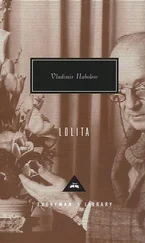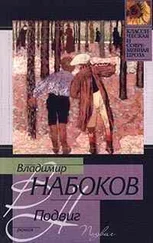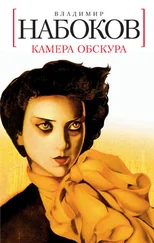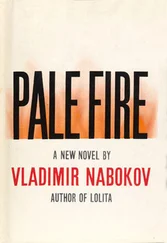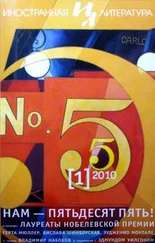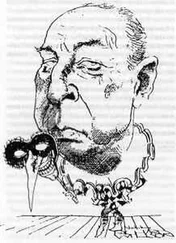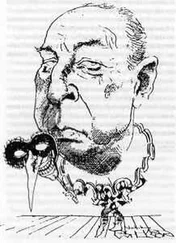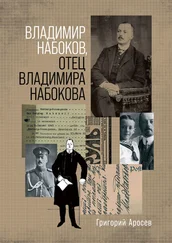Владимир Набоков - Pale Fire
Здесь есть возможность читать онлайн «Владимир Набоков - Pale Fire» весь текст электронной книги совершенно бесплатно (целиком полную версию без сокращений). В некоторых случаях можно слушать аудио, скачать через торрент в формате fb2 и присутствует краткое содержание. Жанр: Классическая проза, на английском языке. Описание произведения, (предисловие) а так же отзывы посетителей доступны на портале библиотеки ЛибКат.
- Название:Pale Fire
- Автор:
- Жанр:
- Год:неизвестен
- ISBN:нет данных
- Рейтинг книги:4 / 5. Голосов: 1
-
Избранное:Добавить в избранное
- Отзывы:
-
Ваша оценка:
- 80
- 1
- 2
- 3
- 4
- 5
Pale Fire: краткое содержание, описание и аннотация
Предлагаем к чтению аннотацию, описание, краткое содержание или предисловие (зависит от того, что написал сам автор книги «Pale Fire»). Если вы не нашли необходимую информацию о книге — напишите в комментариях, мы постараемся отыскать её.
Pale Fire — читать онлайн бесплатно полную книгу (весь текст) целиком
Ниже представлен текст книги, разбитый по страницам. Система сохранения места последней прочитанной страницы, позволяет с удобством читать онлайн бесплатно книгу «Pale Fire», без необходимости каждый раз заново искать на чём Вы остановились. Поставьте закладку, и сможете в любой момент перейти на страницу, на которой закончили чтение.
Интервал:
Закладка:
Travels across the country of my cheek;
Cars on the highway pass, and up the steep
Incline big trucks around my jawbone creep,
And now a silent liner docks, and now
Sunglassers tour Beirut, and now I plough
Old Zembla's fields where my gay stubble grows,
And slaves make hay between my mouth and nose.
Man's life as commentary to abstruse
940Unfinished poem. Note for further use.
Dressing in all the rooms, I rhyme and roam
Throughout the house with, in my fist, a comb
Or a shoehorn, which turns into the spoon
I eat my egg with. In the afternoon
You drive me to the library. We dine
At half past six. And that odd muse of mine,
My versipel, is with me everywhere,
In carrel and in car, and in my chair.
And all the time, and all the time, my love,
950You too are there, beneath the word, above
The syllable, to underscore and stress
The vital rhythm. One heard a woman's dress
Rustle in days of yore. I've often caught
The sound and sense of your approaching thought.
And all in you is youth, and you make new,
By quoting them, old things I made for you.
Dim Gulf was my first book (free verse); Night Rote
Came next; then Hebe's Cup, my final float
In that damp carnival, for now I term
960Everything "Poems," and no longer squirm.
(But this transparent thingum does require
Some moondrop title. Help me, Will! Pale Fire.)
Gently the day has passed in a sustained
Low hum of harmony. The brain is drained
And a brown ament, and the noun I meant
To use but did not, dry on the cement.
Maybe my sensual love for the consonne
D'appui, Echo's fey child, is based upon
A feeling of fantastically planned,
970Richly rhymed life.I feel I understand
Existence, or at least a minute part
Of my existence, only through my art,
In terms of combinational delight;
And if my private universe scans right,
So does the verse of galaxies divine
Which I suspect is an iambic line.
I'm reasonably sure that we survive
And that my darling somewhere is alive,
As I am reasonably sure that I
980Shall wake at six tomorrow, on July
The twenty-second, nineteen fifty-nine,
And that the day will probably be fine;
So this alarm clock let me set myself,
Yawn, and put back Shade's "Poems" on their shelf.
But it's not bedtime yet. The sun attains
Old Dr. Sutton's last two windowpanes.
The man must be - what? Eighty? Eighty-two?
Was twice my age the year I married you.
Where are you? In the garden. I can see
990Part of your shadow near the shagbark tree.
Somewhere horseshoes are being tossed. Click, Clunk.
(Leaning against its lamppost like a drunk.)
A dark Vanessa with crimson band
Wheels in the low sun, settles on the sand
And shows its ink-blue wingtips flecked with white.
And through the flowing shade and ebbing light
A man, unheedful of the butterfly -
Some neighbor's gardener, I guess - goes by
Trundling an empty barrow up the lane.
COMMENTARY
Lines 1-4: I was the shadow of the waxwing slain, etc.
The image in these opening lines evidently refers to a bird knocking itself out, in full flight, against the outer surface of a glass pane in which a mirrored sky, with its slightly darker tint and slightly slower cloud, presents the illusion of continued space. We can visualize John Shade in his early boyhood, a physically unattractive but otherwise beautifully developed lad, experiencing his first eschatological shock, as with incredulous fingers he picks up from the turf that compact ovoid body and gazes at the wax-red streaks ornamenting those gray-brown wings and at the graceful tail feathers tipped with yellow as bright as fresh paint. When in the last year of Shade's life I had the fortune of being his neighbor in the idyllic hills of New Wye (see Foreword), I often saw those particular birds most convivially feeding on the chalk-blue berries of junipers growing at the corner of his house. (See also lines 181-182.)
My knowledge of garden Aves had been limited to those of northern Europe but a young New Wye gardener, in whom I was interested (see note to line 998), helped me to identify the profiles of quite a number of tropical-looking little strangers and their comical calls; and, naturally, every tree top plotted its dotted line toward the ornithological work on my desk to which I would gallop from the lawn in nomenclatorial agitation. How hard I found to fit the name "robin" to the suburban impostor, the gross fowl, with its untidy dull-red livery and the revolting gusto it showed when consuming long, sad, passive worms!
Incidentally, it is curious to note that a crested bird called in Zemblan sampel ("silktail"); closely resembling a waxwing in shape and shade, is the model of one of the three heraldic creatures (the other two being respectively a reindeer proper and a merman azure, crined or) in the armorial bearings of the Zemblan King, Charles the Beloved (born 1915), whose glorious misfortunes I discussed so often with my friend.
The poem was begun at the dead center of the year, a few minutes after midnight July 1, while I played chess with a young Iranian enrolled in our summer school; and I do not doubt that our poet would have understood his annotator's temptation to synchronize a certain fateful fact, the departure from Zembla of the would-be regicide Gradus, with that date. Actually, Gradus left Onhava on the Copenhagen plane on July 5.
Line 12: that crystal land
Perhaps an allusion to Zembla, my dear country. After this, in the disjointed, half-obliterated draft which I am not at all sure I have deciphered properly:
Ah, I must not forget to say something
That my friend told me of a certain king.
Alas, he would have said a great deal more if a domestic anti-Karlist had not controlled every line he communicated to her! Many a time have I rebuked him in bantering fashion: "You really should promise to use all that wonderful stuff, you bad gray poet, you!" And we would both giggle like boys. But then, after the inspiring evening stroll, we had to part, and grim night lifted the drawbridge between his impregnable fortress and my humble home.
That King's reign (1936-1958) will be remembered by at least a few discerning historians as a peaceful and elegant one. Owing to a fluid system of judicious alliances, Mars in his time never marred the record. Internally, until corruption, betrayal, and Extremism penetrated it, the People's Place (parliament) worked in perfect harmony with the Royal Council. Harmony, indeed, was the reign's password. The polite arts and pure sciences flourished. Technicology, applied physics, industrial chemistry and so forth were suffered to thrive. A small skyscraper of ultramarine glass was steadily rising in Onhava. The climate seemed to be improving. Taxation had become a thing of beauty. The poor were getting a little richer, and the rich a little poorer (in accordance with what may be known some day as Kinbote's Law). Medical care was spreading to the confines of the state: less and less often, on his tour of the country, every autumn, when the rowans hung coral-heavy, and the puddles tinkled with Muscovy glass, the friendly and eloquent monarch would be interrupted by a pertussal "back-draucht" in a crowd of schoolchildren. Parachuting had become a popular sport. Everybody, in a word, was content - even the political mischiefmakers who were contentedly making mischief paid by a contented Sosed (Zembla's gigantic neighbor). But let us not pursue this tiresome subject.
To return to the King: take for instance the question of personal culture. How often is it that kings engage in some special research? Conchologists among them can be counted on the fngers of one maimed hand. The last king of Zembla - partly under the influence of his uncle Conmal, the great translator of Shakespeare (see notes to lines 39 - 40 and 962), had become, despite frequent migraines, passionately addicted to the study of literature. At forty, not long before the collapse of his throne, he had attained such a degree of scholarship that he dared accede to his venerable uncle's raucous dying request: "Teach, Karlik!" Of course, it would have been unseemly for a monarch to appear in the robes of learning at a university lectern and present to rosy youths Finnigans Wake as a monstrous extension of Angus MacDiarmid's "incoherent transactions" and of Southey's Lingo-Grande ("Dear Stumparumper," etc.) or discuss the Zemblan variants, collected in 1798 by Hodinski, of the Kongs-skugg-sio (The Royal Mirror), an anonymous masterpiece of the twelfth century. Therefore he lectured under an assumed name and in a heavy make-up, with wig and false whiskers. All brown-bearded, apple-checked, blue-eyed Zemblans look alike, and I who have not shaved now for a year, resemble my disguised king (see also note to line 894).
Читать дальшеИнтервал:
Закладка:
Похожие книги на «Pale Fire»
Представляем Вашему вниманию похожие книги на «Pale Fire» списком для выбора. Мы отобрали схожую по названию и смыслу литературу в надежде предоставить читателям больше вариантов отыскать новые, интересные, ещё непрочитанные произведения.
Обсуждение, отзывы о книге «Pale Fire» и просто собственные мнения читателей. Оставьте ваши комментарии, напишите, что Вы думаете о произведении, его смысле или главных героях. Укажите что конкретно понравилось, а что нет, и почему Вы так считаете.

